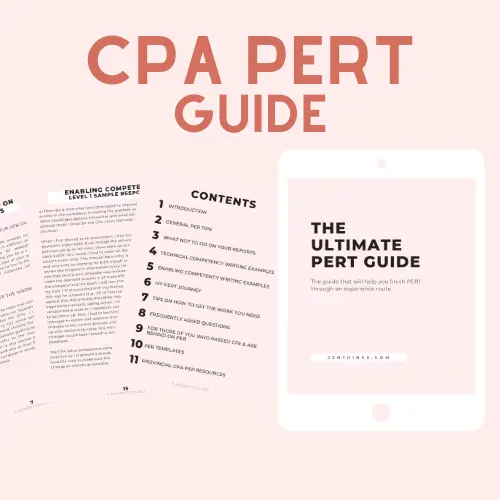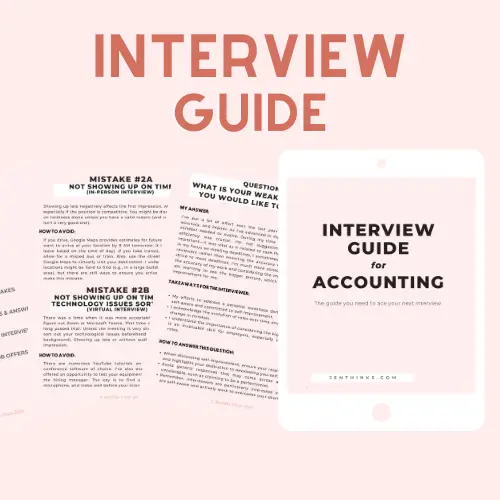I want to start this post by sharing that in the last five years of my accounting career, I have worked very few overtime. I have worked in two industries – heavy machinery and software. I started as an AR/AP clerk at one company and currently work as a Revenue Accountant at my third company. Note, I needed the paychecks like everyone else so I did not avoid working overtime because I can just walk away anytime. I have always had a job lined up before I moved on to the next opportunity. However, what I want to share in this post is how I have managed to work less overtime than an average accountant* and continued to move up the corporate ladder. Luck has been a factor but there was a lot more than that. I am also fully aware that my future employers or coworkers might see this one day. But what I am about to share does not make you a lazy person. I need to stress that not working overtime should not make you less desirable as an employee. It actually might make you a better employee and coworker because you will be happier and more committed to work during business hours.
When My Accounting Career Started
Just over five years ago, I started my first proper office job working in accounting. Prior to that, I was doing some light bookkeeping for a pharmacy I worked at. That first office job was my first salaried position and I was on contract (but I turned permanent few months later when an opportunity opened up). One thing I did not get to share in my post on what I would tell myself seven years ago was that when I decided to become a CPA, I also decided not to go the public firm route. My research has told me that a lot of overtime would be required if I went the firm route and I did not want that. I was around 24 when I started my first accounting job and I knew I would be going to school in the evenings for CPA PREP-equivalent courses at the local college. I would only have work-life balance if my job offered stable hours as I can take the 6 PM classes after work and still had most of the weekends off (I took some Saturday classes). Also, as much as I wanted a successful career as a CPA, I valued spending time with my loved ones just as much (if not more). As a result, I have always clearly communicated my school obligations to my manager at the time (e.g., I had to leave by 4:30 on school nights). School was extremely important to me as any delay to my schooling would mean delaying my CPA designation down the road (the ripple effect). Luckily, my manager understood that and respected my request. In return, I have always completed my deliverables on-time. Back then, my salary was nothing to write home about. However, by protecting my time meant that I can get my designation as planned. As you might already know, those 3 letters carry weight during salary negotiation. What I did five years ago before I even began the CPA PEP program have an impact on what I bring home every paycheck years later.
But I Could Be Just Lucky With That Employer
I know this statement was not true because my coworkers in that department worked overtime (to varying degrees). This might come out like I was not a team player, but I 100% was. I was never the one to ignore a coworker when they needed help and I actually had a great relationship with them (we have kept in touch over the years). However, I was not in a position to take their pains away from them as well. All I was able to do is to be as efficient in my job as possible and helped as much as I can when I was there.
This experience has also shown me how setting boundaries helped protect what mattered to me. I have said this before – your employment contract is a business transaction. Your employer pays you a specific amount to do a job that you have both agreed to. If they did not tell you the truth of what to expect (e.g., regular overtime) when the negotiation took place, why did you have to be the party getting the short end of the stick?
When I Could Help Take the Pain Away From Others, I Did
A couple of years later, I was in a more senior position within my function. When my small but efficient team was asked to absorb another finance function, I broke our capacity down with data to show my superior why it was not feasible. My team and I have made enough process improvements by that point that we simply were not able to take on more work without an extra headcount or existing work taken away from us. It was not easy saying ‘no’ because it could have negative impact on my performance review or future with the company. However, I knew in my gut what I was doing was right. If I had accepted the extra workload on behalf on my team knowing that it would stretch us thin, I was not looking out for myself and them. It would overwork us and leave us with no room to breathe. On top of that, my team morale would go down and our performance would deteriorate. That short-term gain (by being a ‘yes’ person) would become negative long-term (by burning out or losing my team’s trust).
I also made the decision I did because I was confident I can back myself up. I have exceeded expectations and gone above and beyond consistently with a full plate. I had my team’s trust because I would put us first. Not accepting extra work knowing we can’t handle it all was respecting the quality of the work we produce.
When I Worked Overtime & Why It Was Worth It
I said I have worked very few overtime over the last five years but that did not mean I have never worked any. However, when I did, it was temporary and for a good reason. The very first time I worked overtime for an extended period of time was when my team was short-staffed. We were down one person due to a necessary business decision and another due to a family emergency. My manager did all he could in terms of support but it was not enough. The business had to continue running so I did what I could to support. Looking back, I would not have done it any differently. It was not an ideal situation but what I did helped make sure my coworker can take the time off she needed. It also was not an issue an extra headcount can fix right away as we had no time to train.
A similar situation happened once more in my career so far. Once again, my superiors did all they could. Money was not spared to ensure sufficient coverage. However, Rome wasn’t built in one day. The most experienced and competent person still requires time to adjust to a new working environment. As a result, we had to all put in more time than usual to make sure we still delivered on time as a team.
The common denominators for when I worked overtime for an extended period of time were these – they were temporary, for a good reason and the company did what they could with available resources. No one was being taken advantage of – it was only a short-term less than ideal situation.
Questions I Asked Myself
I mentioned in the beginning that my experience so far had to do with luck partially. I can’t argue with that but I also want to stress that I have made very conscious efforts in protecting my time and what mattered to me. When I was in situations where I had to work beyond the agreed upon or expected hours, I asked myself these questions:
- will an extra headcount help with the situation?
- if so, can the company afford it?
- was it something my employer and I agreed to?
- did they explicitly tell me that regular overtime would be expected during salary negotiation?
- is it temporary?
- if not, is my total compensation fair for the actual hours worked?
These questions are important because they dictate how you feel about the overtime you have to do.
Overtime & Mental Health – Why It Matters
If you are not new to jenthinks, you probably know that I always remind you that mental health matters. I have met a lot of accountants (some are pursuing a CPA designation and some are not) and many have similar stories. They are not in a management position (i.e., early in their careers) and have to work overtime regularly (e.g., month-end). Most of them are not happy about their workloads and feel burned out. They would also say there is no end in sight.
The thing is, no one can feel like that for an extended period of time without their mental wellness being impacted. Your mental health is connected to your physical health because mental illnesses are problems that start with a vital organ: brain. Research has also shown that working long hours are detrimental to both the employees and employers.
When you connect all the dots together, evaluate your work again. If something is wrong, be an advocate for yourself before it is too late. I know from experiences that a lot of fears can be associated with doing that – fear of being judged lazy or unmotivated, fear of opportunities passing by because you did not say ‘yes’ or fear of screwing up your coworkers because you did not take on the work. However, those are not your burdens to carry. If you know you are giving your all within reasons, how others view you do not define who you are. Remember, you have an obligation to take care of yourself first.
You know how those safety videos on the plane teach us to put an oxygen mask on ourselves before helping others? This is exactly what you need to do.
If You Feel Stuck Working Overtime Forever – What Can You Do
I don’t have one clear answer for you because it depends. It depends on the following factors:
- how your mental state is
- if your workload is prohibiting you from feeling joy outside of work, take actions ASAP
- what you are doing it for
- a promotion, a raise etc.
- but be wary of vague/empty promises and evaluate the costs and benefits carefully
- what opportunities are out there
- even though grass is not always greener on the other side, my experience so far has proven it can be
- how much you trust your manager
- because it might be worthwhile to share your thoughts and see if there is anything the company could do
Lastly, this is what being financially responsible can help you. As much as I enjoy what money brings me (e.g., vacations, material possessions), I know I will give up a lot of them in a heartbeat in exchange for my mental wellness. Enjoy life in the moment but always save what you can. A healthy emergency savings can help you remove yourself from toxic situations that have become too much to bear.
*based on what I have witnessed, read about online and my poll results on my Instagram


